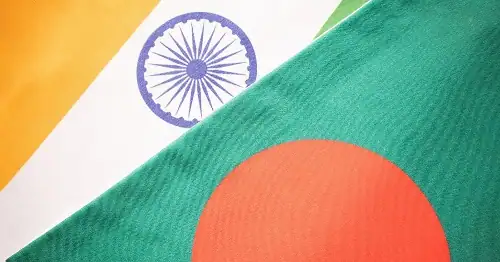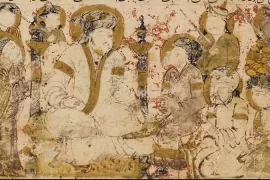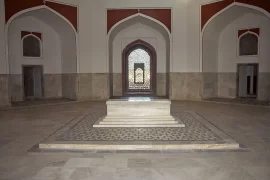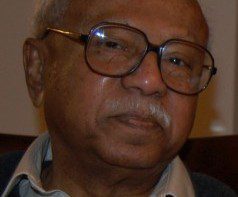A plethora of bilateral problems have been piled up over the last 43 years since Bangladesh’s independence. Successive governments from both sides are responsible for these problems with the exception of the government of Janata Dal when Morarji Desai was the Prime Minister of India. The Prime Minister of the newly independent Bangladesh Sheikh Mujibur Rahman’s command that Indian troops leave Bangladeshi lands within a period of three months was not swallowed with good grace by the Ministry of External Affairs in New Delhi. As a result, pressure was built against the government of Sheikh Mujibur Rahman, coercing him to submit to the Indian government.
As an example, the land boundary agreement was signed in 1972 by the prime ministers of Bangladesh and India, but implementation of the agreement was held up because India did not ratify the agreement on some pretext or other. After the lapse of 41 years, Indian Prime Minister Manmohan Singh signed a protocol to the Land Boundary Agreement during his state visit to Bangladesh in September 2011, but the Indian Parliament did not succeed in ratifying this protocol due to opposition by the Bharatiya Janata Party in 2013.
Another significant irritant is related to the sharing of water from the Ganges which is an international river. The joint declaration of then prime ministers of India and Bangladesh on 16 May, 1974 to arrive to a mutually accepted solution before the barrage was opened at the Ganges in Farakka, Murshidabad, was not carried out when India declared the unilateral commissioning of the barrage as a test run.
During the liberation war, the people of Bangladesh had suffered tremendously in the hand of the Pakistan army while thousands lost their lives and houses. The Bangladeshi government of Sheikh Mujibur Rahman made a commitment to citizens of the country that Pakistani prisoners of war would be tried on Bangladeshi soil for their atrocities. However, authorities in India, headed by then Prime Minister Indira Gandhi, had a bilateral discussion with Pakistani President Zulfiqar Ali Bhutto in Shimla on July 2, 1972, where the release of prisoners of war and civilian internees were agreed upon with a view of establishing durable peace and normalization of relations. As a follow-up of the Shimla agreement between Gandhi and Bhutto, a tripartite agreement was signed on April 1974 to release prisoners of war unconditionally. Not one war crimes trial took place on the soil of Bangladesh. It was the result of the highhandedness of Indira Gandhi, who sought to develop India’s relations with Pakistan at the cost of Bangladesh. Gandhi offered Zulfiqar Ali Bhutto generous terms for the return of some five thousand square miles of Pakistan territory seized by Indian troops, whereby 93,000 Pakistani prisoners of war were released from India’s custody. Many Indians were startled by Bhutto’s negotiation skills in Shimla.
Bangladesh is a lower riparian country whereas she is deprived of her due share of water from common rivers which pass through China, Nepal, India and end in Bangladesh. After the Farraka barrage was opened over the river Ganges without taking the consent of the lower riparian Bangladesh, a long 30 year treaty was signed between Bangladesh and India in 1996, during the regime of the Awami League government but it did not include any guarantee clause.
In the absence of a guarantee clause which in fact existed in the five year agreement signed in 1977 during the reign of President Ziaur Rahman of the Bangladesh Nationalist Party (BNP), Bangladesh has been deprived of water during the lean period, contrary to the commitment of India, causing salinity problems in Bangladesh. The government of India had agreed to share water from the Teesta River and an agreement was prepared after consulting with Bangladesh. The agreement was cancelled in the last minute after the Chief Minister of West Bengal objected to certain clauses listed there. According to the Indian constitution, the central government is not allowed to go ahead with any agreement or treaty with a foreign country without the consent of the state government. India unilaterally built a number of barrages on common rivers causing ecological problems for Bangladesh.
Bangladesh’s trade relation with India is unbalanced as it goes in favour of India.
In May 2014, the Bharatiya Janata Party (BJP) came to power in 30 years replacing the old guard of the National Indian Congress from power. Narendra Modi, former Chief Minister of Gujarat, has assumed premiership of India. During his campaign trail, Narendra Modi spoke about alleged illegal Bangladeshis in India, particularly in West Bengal and Assam, and repeated old slogans to push them back to Bangladesh. In fact, he directed the Home Ministry to open a special cell which would prepare a list of alleged illegal Bangladeshis in India. The Indian economy is not so robust that Bangladeshis would sneak into India to seek jobs, as claimed by the Prime Minister of India Narendra Modi during his election campaigns.
Under no circumstance could the Bangladesh government expect a honeymoon like relation with the Bharatiya Janata Party (BJP) of India. The election manifesto of the BJP government has raised concern for Bangladesh as BJP has made a pledge to implement river linking projects based on feasibility. This pet project of the BJP was abandoned by the Combined Progressive Alliance (CPA) led by the Indian National Congress when it came to power in 2004. The unilateral decision of the BJP government in 2001, adopting the River Linking Project, will divert water from the Ganges and the Brahmaputra to West and South India by creating artificial reservoirs. The main linkage would be between the Ganges and Kaveri rivers. If the project is implemented, it would create devastating effects on Bangladesh. The Bangladesh government should take it up with the BJP government immediately before the feasibility study is completed. The Bangladesh government is also deprived from receiving its due share of water during lean periods from the Ganges as agreed upon in the 1996 treaty on sharing of water from the Ganges, an international river. The Indian government should consult with the Bangladesh government with regard to common rivers in accordance with article 9 of 1996 Ganges Water Sharing Treaty.
In the words of Professor Gary J.Bass who wrote the book, ‘The Blood Telegram Nixon, Kissinger and forgotten Genocide,’ India has separated itself from Bangladesh with armed guards and massive fences with barbed wire, running along most of the border. As part of their manifesto, BJP is also committed to complete all pending fencing work along the Indo-Bangladesh border with a view of stepping up border security and stopping infiltration. By 2012 India had completed 2735 kilometers of barbed wire fencing along the Bangladesh-India border which itself does not speak of friendly relations toward Bangladesh.
Another irritating problem between Bangladesh and India is push-in, alleged illegal Bangladeshis from India. Although push-in alleged illegal Bangladeshis did not appear in the election manifesto this time – it was included in the BJP’s manifesto in 1999 – but Narendra Modi as a candidate has spoken in Assam and West Bengal about the alleged illegal Bangladeshis in India, declaring that they would be driven out of India if BJP is voted to power. For the knowledge of the Indian authorities, I would like to quote from Silicon India which stated in May 2013 that about 500,000 Indians from West Bengal, Assam, Tripura and Mizoram are working illegally in Bangladesh. A number of Indian journalists are employed in Bangladesh. On the other hand, I find no reason for Bangladeshis to go to India where no honey is flowing.
The visit of Sushma Swaraj, External Affairs Minister of India, who was the immediate past leader of the opposition in the Lok Sabha of India, to Bangladesh from June 25 to 27, 2015 was in fact a tour for fact-finding to know the pulse of Bangladesh political leaders, bureaucrats and member of civil society vis-à-vis India. Sushma Swarj, however, assured Bangladesh authorities that she’d expedite the ratifying of the land boundary treaty of 1974 in the Lok Sabha and resolve the issue of sharing water from the Teesta River.
Viewed from these perspectives, there would be difficulty ahead of the Bangladesh government in improving relations with India in view of the fact that the present Bangladesh government does not hold mandate from the people of the country to bargain on any issue from the position of strength or no card to play because the grand coalition led by Awami League exhausted all cards by providing a corridor to India during its reign from 2009 to 2012. Let us wait and see which way the wind blows during the regime of the Bharatiya Janata Party.
Mohammad Amjad Hossain, retired diplomat from Bangladesh and former President of the Nova chapter of the prestigious Toastmaster International Club of America, writes from Virginia.








